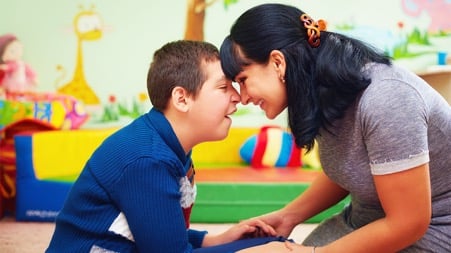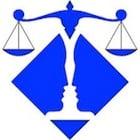Choosing Between In-Person and Online Autism Assessments: Which is Best for You?
When seeking an autism diagnosis for yourself or a loved one, the choice between in-person and online autism assessments can be crucial. Each option has distinct advantages, and choosing the right format can impact your experience and outcomes. Advanced Assessments Ltd offers both private autism assessments, whether you need an “autism specialist near me” or prefer the convenience of an “online autism assessment.”
Comparing In-Person vs. Online Autism Assessments
In-Person Autism Assessments
In-person assessments have traditionally been the preferred choice, offering direct, face-to-face interaction in a structured clinical setting. Some benefits include:
- Immediate Observations and Interaction: In-person assessments enable clinicians to observe behaviors, body language, and interactions directly, which can help with nuanced autism diagnostic assessments.
- Controlled Environment: Clinical settings create a structured atmosphere that minimizes distractions, particularly beneficial for both adult autism evaluations and pediatric autism evaluations near me.
- Enhanced Comfort for Some Clients: Many individuals feel more connected through face-to-face engagement, which can foster a sense of trust and rapport with the clinician.
Online Autism Assessments
The increased demand for accessible autism evaluations has made online assessments a popular and effective alternative. Key advantages of this approach include:
- Convenience and Accessibility: With online autism assessments, you can complete the process from home, ideal for those seeking an “adult autism assessment online” without the need to travel.
- Comfort of Familiar Surroundings: For clients with sensory sensitivities, being in a familiar environment can help reduce anxiety, leading to more authentic responses during an online autism diagnosis.
- Reduced Wait Times and Costs: Online assessments can often be scheduled sooner, and without travel expenses, they’re convenient for those searching for “autism testing for adults near me.”
Which Autism Assessment is Right for You?
Both in-person and online options at Advanced Assessments Ltd offer thorough and reliable evaluations. Consider these factors:
- Location and Accessibility: For clients in remote areas or who lack local services, an “online autism assessment in the UK” can connect you with qualified specialists. Alternatively, an “adult autism evaluation near me” in a clinical setting can offer the benefit of face-to-face interaction.
- Comfort Level: Those who feel more comfortable in familiar settings may benefit from online autism testing, while others may prefer the formality of an in-person evaluation.
- Complexity of the Assessment: For certain cases, in-person assessments may provide additional insights, although online evaluations are highly effective for comprehensive autism diagnostics.
Getting Started with Advanced Assessments Ltd
At Advanced Assessments Ltd, our private autism assessment options start from £1,200. Whether you’re looking for an “autism diagnosis near me” or the flexibility of an “online autism assessment,” we’re here to help. Reach out today to schedule a consultation and take the next step toward clarity and support.
We use cookies to improve our service and ensure that we give you the best experience. If you continue without changing your settings, we will assume that you are happy to receive all cookies on our website.
Private Autism Assessment By Expert Psychologists In London and Throughout the UK
Rated *******5//5
Rated Excellent Read Our Customer Reviews
Ask About Our Online Remote Video Enabled Version of This Psychological Assessment. Find Out More Here About the Process Here
Autism Diagnostic Assessments
Our expert psychologists carry out private autism assessments and diagnosis for both adults and children across the spectrum at our Autism Assessment Centres or online.
Autism also is known as Autism Spectrum Disorder (ASD) or Autism Specturm Conditon (ASC). ASD is a life long developmental disorder which severely affects social interaction, language development, communication, processing information and issues engaging in an everyday environment. Currently, autism affects around 700,000 people but 2.8 million if including the family members of those with the disability. Symptoms show after the first three years of birth. For further clarification, autism is not an illness or disease but rather, a neurodevelopmental condition hence it is categorised by a set of repetitive behaviours because the brains of Autistic people are wired differently, and it cannot be cured. Commonly, people with ASD usually have a co-morbidity (more than one) mental health disorder such as anxiety, depression, dyslexia or ADHD. The way Autistic people perceive the world through their five senses does not allow them to cope with elements of society in which cases may require institutional care. To find out more about autism, click the link

Call us on + 44 (0) 208 200 0078
Autism Assessment Near Me
- Multidisciplinary Autism Assessment
- Autism Assessment London
- Autism Assesment Birmingham
- Autism Assesment Nottingham
- Child and Adolescent Autism Assessments
- Adult Autism Assessments
- Female Autism Assessments
- Autism Assessment Near Me
Private Autism Diagnosis and Assessment | Adult and Child ASD Assessment | Autism Assessment UK
Autism Diagnosis and Assessment by Psychologists for Children and Adults in UK and Internationally: ̶̶̶Fast Turn Around. Comprehensive Autism Assessments for Legal, Education and Employment for Children and Adults. Autism Assessments Reports.
Autism Test
In the United Kingdom, the diagnostic manual used to outline the disorders is the International Classification of Diseases, tenth edition (ICD-10). It gives a clear outline of the different disorders which all fall under the spectrum. The Diagnostic and Statistical Manual, fifth edition (DSM-5) contains the more global diagnostic criteria outlining the disorder as "persistent difficulties with social communication and social interaction, restricted and repetitive patterns of behaviours, activities or interests which limit and impair everyday functioning.” Find out more about how doctors diagnose Autism
If the online test indicates you probably have autism, you will need to book a full autism assessment with our expert psychologists. We specialise in diagnostic reports and assessments regardless of how long it takes an individual to complete an assessment. The average period is 3 to 5 hours but can stretch to over 8 hours. In complex cases we my need to see the person being assessed over several days to ensure we have robust and valid data. The assessments are more in-depth than other providers as we don't believe in a rushed service. The gold standard tests are used by chartered psychologists to ensure the customer is paying for quality assessments. The face to face assessments takes place after the preliminary assessment which lasts between 2 to 2 and a half hours. Prices will vary depending on whether the individual wants a home assessment or in our London, Birmingham or Nottingham based assessment centre. For more detail on our autism assessments, please call the office on 0208000078 Take an online autism test here
At the start of the ASD assessment there is a clinical interview with the parents or carers based on the criteria in the DSM-5 and ICD-10, we often use the Childhood Autism Rating Scale (CARS) for children. This part of the interview is followed by the Autism Diagnostic Interview Revised (ADI-R). We collect additional evidence from those that have know the child or adult for at least a year, including parents teachers, and other healthcare professionals, we ask them to complete the Adaptive Assessment Behaviour Rating System (ABAS-3) — to assess communication skills, approach to health and safety, approach to work, ability to live in the community leisure and academic ability. We also ask those that know the person being assessed very well to complete the Behaviour Rating Inventory of Executive Function (BREIF) to asses the person who is being assessed ability to inhibit impulses; their ability to self-monitor; their ability to plan/organise; their ability to shift from one environment or topic to another; their ability to initiate actions; their ability to monitor tasks; their level of emotional control; their working memory and their ability to organise materials.
The face-to-face element of the assessment involves the expert psychologist working with the individual to complete intelligence test to determine whether they have High Functioning Autism or autism with an intellectual impairment. There is a behavioural observation done, for children it is play based whilst adults are observed through conversation other actives; the Autism Diagnostic Observation Schedule (ADOS) and to end, feedback of the session findings is given. We write reports to summarise the child or adult’s development and come to a diagnostic conclusion whilst giving advice on strategies to manage the autism, the necessary reasonable adjustments for employment, extra time and support for education or special measures for those involved in criminal proceedings.
Parents of young children who have not had an autism assessment before are encouraged to also contact a speech and language therapist. We encourage them to use the assessment and evidence that has been collected as part of their submission for a multidisciplinary assessment if their school or local authority ask for one. Practices vary in each local authority area, some schools and local authorities do not require a multidisciplinary assessment.
Find Out More About Autism:
Autism Symptoms
What Are the Symptoms of Autism?
People with autism generally have impairments in their social interaction, which are identified early in their childhood. They cannot perceive others which embodies itself in their non-verbal communications with others, affecting their ability to make friends and can cause them to suffer from isolation and depression if they cannot have a few to improve their quality of life.
Verbal communication is also a daily struggle with a third of autistic people being unable to develop natural speech, including delayed onset babbling, less responsiveness and gestures which do not follow the flow of their speech. They also show problems with imaginative play, developing symbols into language.
The third characteristic which defines this disorder is repetitive and restricted behaviours which fall under the categories of stereotyped behaviour, compulsive behaviours, sameness, ritualistic behaviour and self-injury. Find out more about Autism Symptoms.
Autism Spectrum
What is the Autism Spectrum?
As previously mentioned, autism is a spectrum which means that there is a range of severity to the extent that some people may have a slight disability in social interaction or may need a carer to help with everyday tasks because of the difficulty to function normally. The range of disorders fall under the title Pervasive Developmental Disorder (PDD) listed in the Diagnostic and Statistical Manual (DSM-5) for mental health disorders but referred as Autism Spectrum Disorders, and all bring issues with behaviour and social communication.
What is High Functioning Autism?
This term is an informal diagnosis used for people who can do the typical day to day tasks such as speaking, read and write, eating and getting dressed. These people can live independently and are usually indistinguishable from everyone else.
People with high functioning disposition struggle with social interaction, much like the other types. They might get anxious in social situations primarily because of their inability to read social cues to the point where they will shut down. Therefore, these people struggle to make friends. High functioning autistic people like to follow a routine to the extent where their repetitive habits may seem weird of eccentric to others. Their performance in academia and a profession can vary. They can be high achievers or underachievers, but their social skills still prove as a disadvantage.
What is Asperger’s Syndrome?
Asperger’s syndrome is characterised by a pattern of symptoms rather than a single symptom. As is it a milder form, these people usually have close if not normal levels of intelligence and language skills, but their unique obsession around one topic defines their disorder and the behaviours which they engage in are linear and repetitive. The symptoms for this disorder include impairments in social interaction such as a lack of emotional reciprocity, poor non-verbal communication (eye contact, gestures, body language) and selective mutism which is not speaking to most people but speaking to a few intensely on a topic which they enjoy.
What is Rett’s Syndrome?
Rett's is a rare and severe neurological disorder, mainly affecting girls between 6 to 18 months of age. The leading cause for this disorder is a genetic mutation on the MECP2 gene. The symptoms vary in severity through stages, but they include: slowed growth because the brain does not grow properly resulting in a smaller head, loss of hand movement so they rub or wring their hands together, loss of language skills so they can develop social anxiety, poor muscle control and coordination and respiratory problems which can cause seizures and hyperventilation. Find out more on Rett’s Syndrome
What is Pervasive Developmental Disorder?
PDD is often confused with PDD-NOS which stands for Pervasive developmental disorder not otherwise specified, as PDD is a separate disorder. People with PDD have the set of symptoms someone on the spectrum would have such as avoiding eye contact, inability to express themselves through language, a high or flat-pitched tone of voice, repetitive behaviour patterns like tapping, hair twirling or foot tapping and struggle with regulating emotion leading to emotional breakdowns, anxiety or aggressive tantrums.
What is Childhood Disintegrative Disorder?
CCD, also referred to Regressive autism, Heller’s syndrome or disintegrative psychosis, is a rare condition with only 1.7 out of 100,000 cases affected. It is a severe or sudden reversal in language, social function and motor skills. Children between the ages of 2 to 10, who had shown healthy development lose skills such as self-care, receptive and expressive language skills, play skills, motor skills and control over their bowel and bladder. This condition also shows repetitive behaviour and interest patterns.

Free Autism Screening Tests
Find A Psychologist Near Me
Autism In Females

Advanced Assessments - Psychologists for Legal, Education and Employment
Open Now - 24 hour Service - Open Weekends
We work throughout the UK
UK: +44 208 200 0078 Emergencies: +44 7071 200 344
Advanced Assessments - Expert Witnesses & Psychologists, 4th Floor, 49 St. James's Street, London, SW1A 1JT
180 Piccadilly, London, W1J 9ER
Also at: Westhill House, Highgate Consulting Rooms, 9 Swain's Lane, London N6 6QS
Please do not attend our office if you do not have an appointment
Twitter: @ExpertWitness_
Facebook
We are a part of the Strategic Enterprise Group
